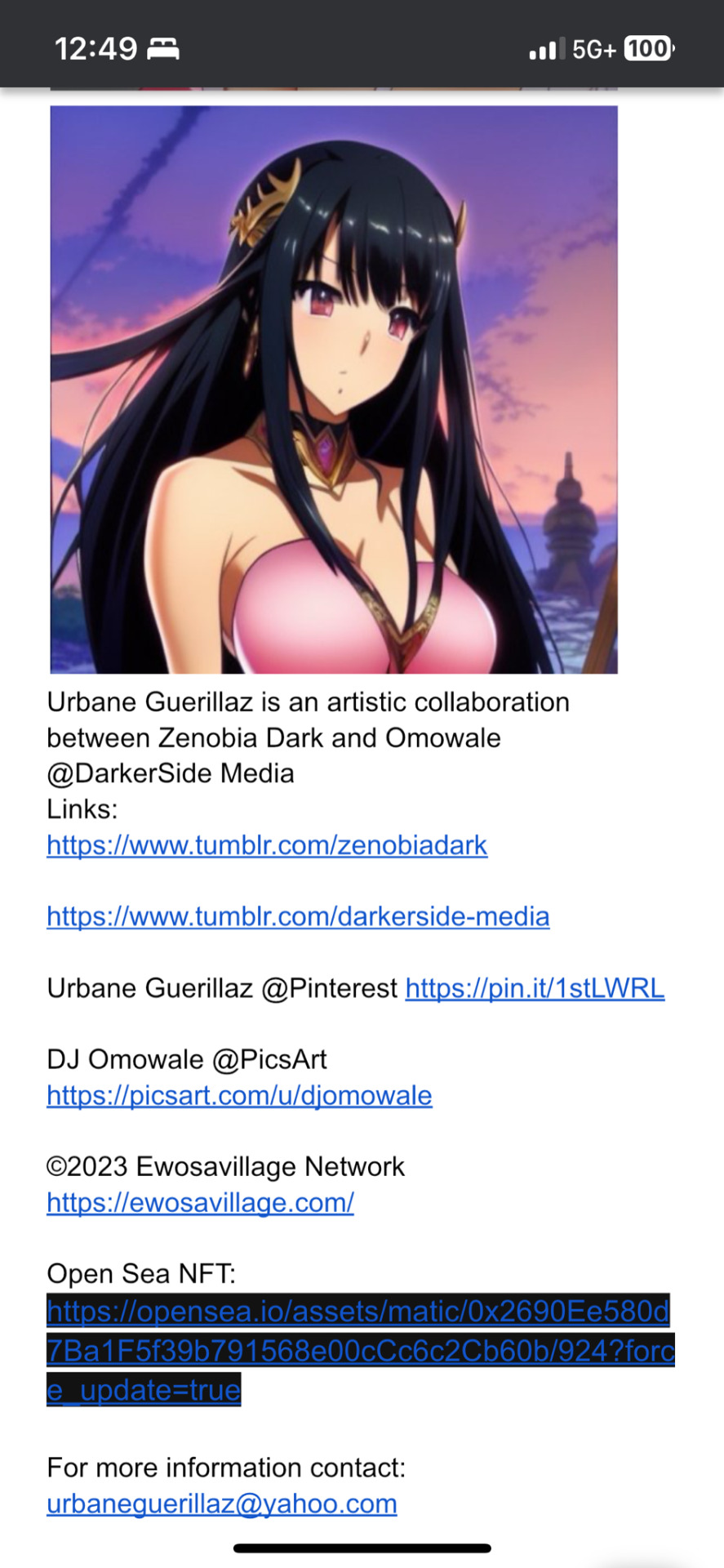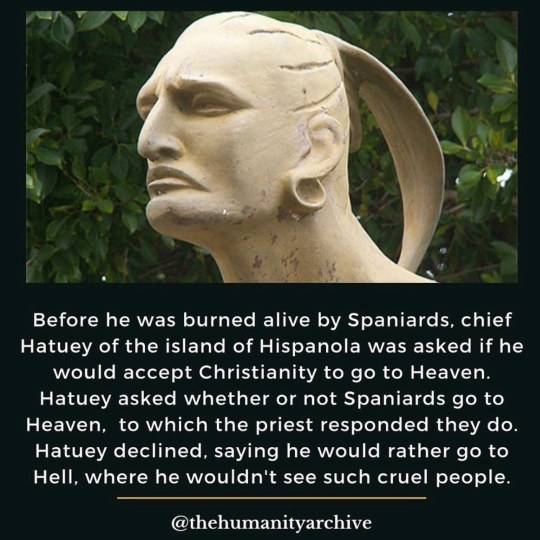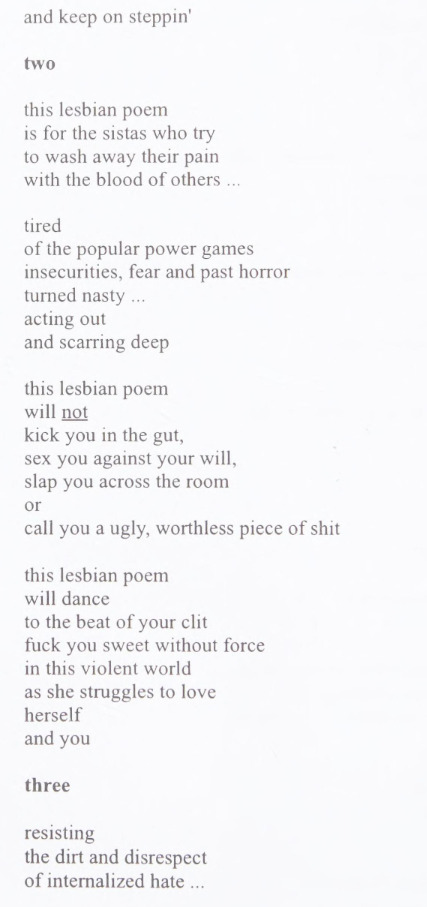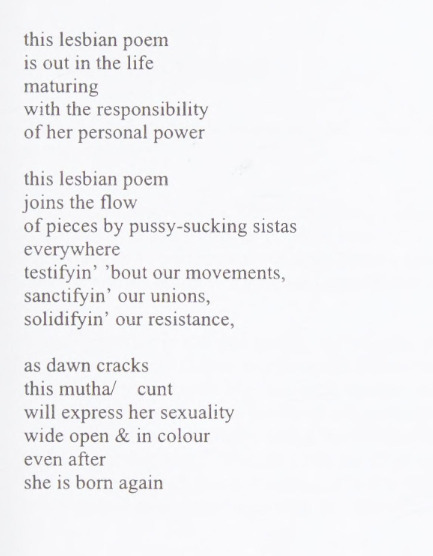#cultural resistance
Explore tagged Tumblr posts
Text
Kendrick Lamar’s Super Bowl Performance: A Revolutionary Act of Defiance and Cultural Resistance
Kendrick Lamar’s Super Bowl halftime show in 2025 wasn’t merely an opportunity to entertain millions—no, this performance was a seismic cultural event. It transcended the realm of music, art, and spectacle, emerging as a deeply revolutionary moment. Every note he played, every lyric he rapped, and every visual he used on the Super Bowl stage was a powerful statement about America’s political,…
#2025#Alpha#Cultural Resistance#CulturalResistance#Defiance#GOAT#Hip-Hop Leadership#HipHo#Kendrick Lamar#KendrickLamar#Music Industry#Revolution#Social Justice#Super Bowl Halftime Show#SuperBowl2025
2 notes
·
View notes
Text

#urbane#urbane guerillaz#fashion#digital art#secret society#culture#cultural representation#cultural resistance
3 notes
·
View notes
Text
Change Management: How to Finesse Law Firm Adoption of Generative AI
Law firms today face a turning point. Clients demand more efficient, cost-effective services; younger associates are eager to leverage the latest technologies for legal tasks; and partners try to reconcile tradition with agility in a highly competitive marketplace. Generative artificial intelligence (AI), known for its capacity to produce novel content and insights, has emerged as a solution that…
#AI#AI Transformation Playbook#Artificial Intelligence#Chief AI Officer#cultural resistance#Director of Legal Innovation#generative AI#IT#law firms#training programs#transparency#trust
0 notes
Text

Remembering,
Khaled al-Asaad 'Mr Palmyra'
Cause of death : Decapitation
In May 2015, modern Palmyra and the adjacent ancient city came under the control of the Islamic State. Al-Asaad helped evacuate the city museum prior to the Islamic State's takeover, but was himself captured by the terrorist organisation. The Islamic State then tortured al-Asaad in an attempt to discover the location of the ancient artifacts that he helped hide. He was murdered in Palmyra on 18 August 2015 at the age of eighty-three.
The New York Times reported:
After detaining him for weeks, the jihadists dragged him on Tuesday to a public square where a masked swordsman cut off his head in front of a crowd, Mr. Asaad's relatives said. His blood-soaked body was then suspended with red twine by its wrists from a traffic light, his head resting on the ground between his feet, his glasses still on, according to a photo distributed on social media by Islamic State supporters.
In February 2021, Syrian state sources reported the discovery of al-Asaad's body in the countryside 10 km east of Palmyra.[22]
Along with al-Asaad, Qassem Abdullah Yehya, the deputy director of the DGAM Laboratories, also protected the Palmyra site, and was murdered by the Islamic State while on duty on 12 August 2015. He was thirty-seven years old
"he had a degree in history from Damascus University, he had no formal training in archaeology - all his knowledge in this field was self-taught."
"When you look at Palmyra today as an archaeological site, really that's the legacy of Khaled al-Asaad," Mr Azm says.
Here, you can read about the antiquties of Palmyra
This is the source I found so far, with details and colored pictures about his work and legacy
Al-Assad was one of the few people on Earth who was fluent in the language of ancient Palmyrian. By the end of his career, he had translated over 3000 lines of text. In addition, he taught himself English to be able to communicate with visitors and scholars interested in the area.
#Khaled al-Asaad#Palmyra#Archaeology#Ancient Syria#Syrian Civil War#Cultural heritage#Antiquities preservation#ISIS#Cultural destruction#Heritage protection#Palmyrene art#UNESCO World Heritage#Roman history#Ancient trade routes#Archaeological hero#Syrian history#Archaeological sites#Cultural resistance#Palmyra temples#Syrian archaeologist#Palmyra ruins#Ancient Middle East#Baalshamin Temple#Palmyra monuments#Zenobia#Roman Empire#Syrian heritage#Heritage conservation#Archaeological excavation#ISIS war crimes
1 note
·
View note
Text
The Philosophy of Rap
The philosophy of rap explores the genre of rap music as a form of cultural expression, examining how it reflects and shapes society, identity, power, and resistance. As a genre deeply rooted in marginalized communities, rap raises philosophical questions about authenticity, voice, justice, and the role of art in social change.
Key Concepts in the Philosophy of Rap:
Rap as a Voice for the Marginalized:
Social commentary: Rap music often serves as a platform for the voiceless, providing marginalized communities with a means to express their experiences with inequality, racism, poverty, and injustice. It highlights the struggles of urban life and critiques societal systems of oppression.
Cultural resistance: Rap emerged as a form of cultural resistance, particularly in Black communities in the United States, and has since evolved into a global phenomenon. Its confrontational style is often seen as a form of resistance to mainstream power structures, using lyrical storytelling to challenge dominant narratives.
Authenticity and Identity:
Keeping it real: The idea of authenticity is central to the philosophy of rap. Artists are often judged based on their ability to reflect their true experiences and identity, with the concept of "keeping it real" emphasizing the importance of staying true to oneself and one’s community.
Identity formation: Rap is a means of self-expression, with artists using lyrics to explore personal identity, culture, and experience. Through their art, rappers construct and project identities, whether through braggadocio, vulnerability, or social commentary.
Rap and Language:
Linguistic innovation: Rap is known for its complex, inventive use of language, including wordplay, metaphor, and rhythmic delivery. Philosophically, it pushes the boundaries of traditional language use, challenging ideas about how meaning is constructed and communicated through words.
Flow and rhythm: The philosophy of rap includes the role of flow and rhythm in conveying meaning. The way a rapper delivers lines, syncopates words, and interacts with the beat is as important as the lyrics themselves in shaping the message and impact of the music.
Power, Money, and Fame:
Materialism vs. meaning: Many rap songs explore the tension between material wealth and authenticity. The glorification of money, power, and fame is a common theme, but it’s often juxtaposed with critiques of how capitalism and economic inequality shape personal and collective identities.
Commercialization: As rap became more mainstream, it also became a highly commercialized genre. This raises questions about the relationship between art and commerce, and how commodification affects the authenticity and social impact of the music.
Rap as Storytelling and Narrative:
Lyrical storytelling: Rap is often praised for its ability to tell stories in a powerful, concise, and impactful way. Many rappers use their music to share personal narratives, express collective experiences, or construct fictional worlds that reflect broader social truths.
Oral tradition: Rap can be viewed as a continuation of the African oral tradition, where storytelling, music, and performance are tightly interwoven. It preserves this tradition while also innovating within it, using modern technology and global influence to expand its reach.
Rap and Philosophy of Aesthetics:
The beauty of the raw: Rap’s aesthetic is often defined by its rawness and grittiness, valuing the imperfect, the real, and the harsh realities of life. This raises questions about what constitutes beauty in art—whether art must be polished and refined or whether its power comes from its unfiltered expression.
Innovation in form: Rap challenges traditional notions of musicality, incorporating elements from various genres (jazz, soul, rock, electronic) and experimenting with beat, tempo, and rhythm. This highlights the aesthetic innovation and boundary-pushing nature of the genre.
Rap and Social Change:
Political activism: Many rap artists use their platform for political activism, advocating for social justice, racial equality, and systemic change. Songs like Public Enemy’s "Fight the Power" or Kendrick Lamar’s "Alright" have become anthems for social movements.
Empowerment and agency: Rap often emphasizes themes of self-empowerment, encouraging individuals and communities to take control of their destiny. It challenges systems of oppression and offers a form of cultural resistance, empowering listeners to engage with their circumstances critically.
Rap and Philosophy of Ethics:
Moral ambiguity: Rap sometimes explores morally ambiguous themes, such as crime, violence, and the pursuit of wealth. This can raise philosophical questions about ethics, particularly whether the genre glorifies these actions or if it reflects the harsh realities of systemic oppression.
Responsibility of the artist: There is ongoing debate about the responsibility of rap artists in promoting positive messages versus reflecting the realities of their environment. Some argue that rappers should be more mindful of the influence they have, while others believe that their role is to depict the world as it is.
The philosophy of rap encompasses themes of authenticity, identity, social justice, and the complex relationship between art and commerce. As a genre that speaks truth to power, rap is both a reflection of personal experience and a critique of broader societal structures. Its linguistic creativity, cultural roots, and ability to inspire social change make it a rich subject for philosophical inquiry.
#philosophy#epistemology#knowledge#learning#education#chatgpt#Rap and Social Commentary#Authenticity in Music#Cultural Resistance#Storytelling and Language in Rap#Power and Materialism in Hip-Hop#Rap and Social Change#Aesthetics of Raw Expression
0 notes
Text
Yintah Trailer Out Now
Join the fight for land sovereignty with Yintah on Netflix. A story of resistance, culture, and the unbreakable spirit of the Wet'suwet'en. Watch from October 18 onwards.
Link to the full story: https://www.theomenmedia.com/post/yintah-the-land-s-defenders-a-netflix-documentary-that-echoes-the-heartbeat-of-wet-suwet-en-resis

#Yintah#Netflix#Indigenous#Wetsuweten#Land Defenders#Documentary Film#True Story#Cultural Resistance#Sovereignty#Film Premiere#Environmental Justice#Indigenous Rights#Documentary
0 notes
Text
The Power of Cultural Identity in Fantasy Narratives
In fantasy literature, few themes are as potent and relevant as the struggle between cultural assimilation and resistance. This conflict, mirroring real-world historical and contemporary issues, provides a fertile ground for exploring complex character dynamics and societal tensions. Today, we’ll delve into this theme using “The Fall of Wolfsbane” as our looking glass. The Clash of…

View On WordPress
#assimilation and resistance#colonialism in fantasy#cultural artefacts in fantasy#cultural assimilation in fantasy#cultural clash in fantasy#cultural identity in fantasy#cultural resistance#cultural struggle in fantasy#Fantasy Character Development#Fantasy Narratives#fantasy storytelling#fantasy world-building#hybrid identities in fantasy#identity in fantasy literature#linguistic imperialism in fantasy#power dynamics in fantasy#resistance in fantasy literature#The Fall of Wolfsbane#themes in fantasy novels
0 notes
Text
TIFF 2024: Voices Unbound: The Defiant Dream of Nasreen in 'A Sister's Tale'
⭐⭐⭐⭐ Rating: 4 out of 5. In Iran, the sound of a woman’s voice, when raised in song, is deemed a threat—so much so that it has been forbidden for women to perform publicly since the 1979 Islamic Revolution. This restriction is rooted in a rigid interpretation of Islamic law, where authorities argue that a woman’s voice might provoke desire or undermine societal morals. But behind these…
#A Sister&039;s Tale#Courage in Art#Cultural Resistance#Defying Silence#Feminist Cinema#Freedom of Expression#Human Rights#indie film#Iranian Cinema#Leila Amini#Music and Freedom#Nasreen#Patriarchy#Sisters on Screen#TIFF 2024#Voices Unheard#Women Empowerment#Women in Film
0 notes
Text
The Black Campus Movement: Black Students and the Racial Reconstitution of Higher Education, 1965–1972
BETWEEN 1965 AND 1972, African American students at upwards of a thousand historically black and white American colleges and universities organized, demanded, and protested for Black Studies, progressive Black universities, new faces, new ideas--in short, a truly diverse system of higher education relevant to the Black community.
Taking inspiration from the Black Power Movement, Black students drew support from many quarters--including White, Latino, Chicano, Asian American, and Native American students--and disrupted and challenged institutions in nearly every state. By the end, black students had thoroughly reshaped the face of the academy.
The Black Campus Movement provides the first national study of this remarkable and inspiring struggle, illuminating the complex context for one of the most transformative educational movements in American history, and providing a groundbreaking prehistory of black student activism from abolition through the 1960s. The book synthesizes records from more than three hundred colleges and universities, including documents from 163 college archives, into one national story. This authoritative study is essential to understanding modern American higher education.
0 notes
Text
massages forehead So Ambessa hid Mel away because she was a weapon in the literal sense, a mage. But Ambessa came to Piltover for Hextech? And Ambessa had nothing to say to Mel about her powers having visibly awakened? Even when Mel offered to go with Ambessa, giving her the ultimate opportunity to make Mel a weapon for real? And Ambessa made no attempt to find or retrieve Mel - not just her daughter and the remnants of the family Ambessa professes to love, but also her ultimate weapon - when she disappeared? And Ambessa trusted Singed and Viktor on their home turf - neither of them hiding how insane and self-serving they are with every reason to take over Ambessa's soldiers or just blatantly turn on her as soon as it benefits them - more than she trusted Mel? While Caitlyn (and by extension Piltover) was visibly and clearly falling away from Ambessa's teachings before Ambessa's eyes? (as if getting rid of certain people allows piltover to get rid of fascism but we won't get into All That)
Not only do I struggle to be hyped for Mel's powers beyond how amazing and beautiful she looks, but I can't help but feel like Mel is somehow less powerful in season 2 than she was in season 1, and not in an interesting way. As if Mel's ability to bend all of Piltover politics and economics to her will in season 1 now means nothing in season 2? You can argue that Jinx's attack led directly to Mel losing ground in Piltover - because I expected Mel to have to claw back that power without being able to rely on people who are too easily seduced by Ambessa and authoritarianism, and she would have to get creative to go toe to toe with her mother. I expected pushback to her mage identity that she would have to navigate. But instead this went either unwritten, or was ignored or discarded. Instead Mel is removed from the main plot, cutting her off from what made her the most interesting - only for all of Mel's very real talents, her very real powers and abilities, to be not only translated but REPLACED with magical powers she doesn't know how to control, and by the finale, those magic powers are the only powers that are considered real. Mel takes a backseat to Piltover's governing and decisions, a backseat to Jayce of all people who was not only new to politics mere months ago but made poor governing, strategic, and diplomatic decisions when he had that power. In season 1 Mel stayed off the "throne" but she did pull its strings one way or the other, and she makes no attempt at this in season 2
In my least generous suspicions, Mel was gentled and quieted to capitulate to an agenda for other characters who had to be correct and heroic - or wrong and villainous - no matter what the leadup narrative said, given her powers to help sell the game and set up future shows, and was effectively ejected from the Arcane story with faceless soldiers and a role she doesn't want because she was inconvenient there
#arcane#spoilers#arcane spoilers#arcane s2#arcane critical#mel medarda#mel arcane#ambessa medarda#this is not helped by having watched Shogun recently with Toranaga in all his horrible glory#Toranaga and Mariko are FRESH in my mind Riot do not PLAY with me#MARIKO WAS TORANAGA'S ULTIMATE HUMAN WEAPON AND SHE DID IT WITH NO SUPERNATURAL POWERS OR REAL MARTIAL PROWESS#SHE DID IT BY BEING GOOD AT BEING A NOBLE IN HER SPECIFIC CULTURE AND GARNERING TRUST AND SYMPATHY IN HER FRIENDS AND PEERS#IN SPITE OF BEING A CHILD OF A CURSED AND SHUNNED BLOODLINE#NOW DOESN'T THAT SOUND FAMILIAR#cough cough anyway I like Mel being a mage but I don't like how they did it and I don't like how separating Mel from Piltover wasn't MORE#sidenote i cannot better express my BAFFLEMENT that viktor and mel were in the same room and mel made no attempt to speak to him#when he was INTERESTED IN HER WHOLE DEAL. he literally REACHES OUT and mel did not use talk no jutsu#season 1 viktor was never in her influence bc 1) he was not just her employee but her SECONDARY employee socially and politically and#2) he's implied to be aware and resistant to her. but in season 2 her mage abilities make him VULNERABLE TO HER physically AND mentally#and she doesn't exploit that???? not even to protect jayce???? let alone piltover?????#also making ambessa less cunning less scary and more predictable than season 1 silco ought to be a criminal offense somewhere
604 notes
·
View notes
Text
Al-Ajaweed Band is a group made up of Black/Afro-Palestinians from the Baq'a Refugee Camp in Jordan. They’re known for being some of the best at dabka!
(linked because the tunnel of quote tweets has more dance videos)
🔥🔥🔥🔥🔥
Please give their page the views they deserve.
#to use an aave term: gag city#dabke#someone do a video description please#palestinian dance#palestinian culture#people of palestine#afro-palestinians#black power#palestinian refugees#free palestine#palestinian resistance#jordan#knee of huss#arab culture#arab dance
1K notes
·
View notes
Text
Palestine regrows, Palestine will never die. There is hope in the very soil of Palestine. Don't lose yours.
"Finally.. a green area!!" from Bisan, 03/Apr/2024:
#hopepunk#hope#hope punk#i believe in palestine#palestine#free palestine#palestine will be free#palestine will never die#gaza#free gaza#from the river to the sea palestine will be free#i stand with palestine#rafah#save rafah#social justice#palestinian lives matter#palestinian resistance#long live palestine#palestinian culture
571 notes
·
View notes
Text

#chief hatuey#hispaniola#spaniards#christianity#heaven#hell#colonization#resistance#indigenous peoples#colonialism#imperial expansion#conquest#settlement#exploitation#indigenous displacement#cultural assimilation
495 notes
·
View notes
Text
💔🤬My God. They discover the obliterated and desecrated remains of their dear mother who was bombed to death moments ago by the United States and Israel. SHAME ON THIS WORLD and all of its cowardly leaders. I’m ashamed to be human right now.
#palestine#free palestine#gaza#humanity#children#december#kids#save palestine#mother#house#home#family#palestinian christians#palestinian culture#palestine resistance#palestina#talk about palestinians#palestinians lives matters#justice for palestinians#palesources#israel is a terrorist state#boycott israel#israel is an apartheid state#israel terrorist#fuck israel#stop war#war criminals#war crimes#war
706 notes
·
View notes
Text



This Lesbian Poem by Akhaji Zakiya from Lisa C Moore's Does Your Mama Know?: An Anthology of Black Lesbian Coming Out Stories
#lesbian culture#lesbian poetry#black lesbians#coming out#resisting the dirt and disrespect#maturing with the responsibility of her personal power#testifyin bout our movements#sanctifyin our unions#solidifyin our resistance
678 notes
·
View notes
Text
I truly admire how much Pin has been fighting back the rule of her aunt. She's a very obedient person, so her rebellion is not as firery as Anin's, but I found the scene of her bowing down to beg her aunt extremely powerful. I felt it very strongly. Even if it's not anger, or bold, upfront resistance, it's not passive or weak either. She IS standing up for their relationship, by showing the extent of her devotion not to her aunt but to Anin and their love. She is showing what she's ready to do. I am honestly not familiar with the weight of such a deep bow culturally, but I would assume that it means A LOT since we've never seen any character of this social status doing it before in the show (except her aunt when she met her sadly dead girlfriend, but it was to indicate subordination since she was going to work for her. And frankly, the parallel is parallelling). This moment of confrontation between them might be my favorite of the episode frankly, except Anin's declaration at the end OF COURSE
Pin resisted as much as she could in all the ways she could, and I'm not blaming her for breaking in the next episode and accepting the mariage. She does respect and love her aunt, and she is also very aware of her social status. She will do her duty because she's been raised to know her place and I would never blame her for that. It's just heartbreaking and unfair, but it's also very understandable.
#Bowing as a form of rebellion and strength...Interesting#In a completely different cultural context and situation to the point where I don't know why my brain made the connection#it reminded me of Legend of Yunze season two when Zhaoyun bows in ''thankfulness'' to her teacher as she denounces all of his hypocrisy#I think I thought about it because both times it was a powerful act of resistance against a parental figure#And it was a huge slay#but anyway that's just how I perceived it with a western point of view so maybe don't listen to me#Although even if I think bowing in China and Thailand is probably very different#I would guess that in every culture bowing down on your knees with your head almost on the ground is pretty deep and sincere#You should watch legend of yunze by the way#the loyal pin#anin#pin#anin x pin#aninpin#the loyal pin ep 12
97 notes
·
View notes